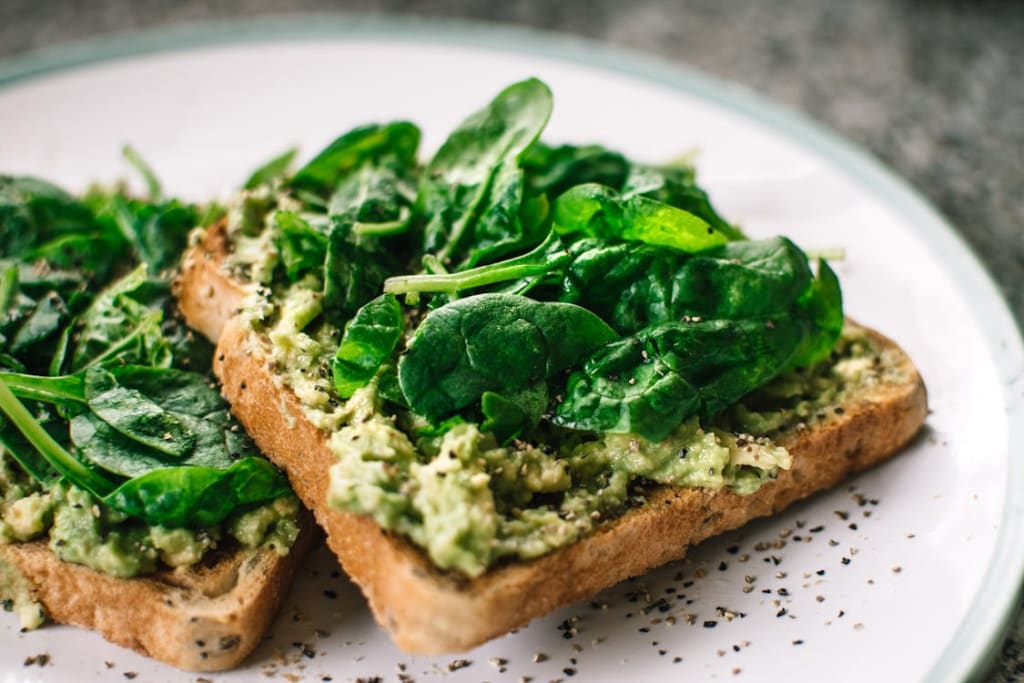Our Comprehensive Guide to Health and Wellness
"Empowering Your Journey to a Balanced and Vibrant Life"

Welcome to our comprehensive guide exploring the multifaceted world of health and wellness. In this insightful journey, we will provide you with practical strategies and valuable insights to help you achieve optimal physical, mental, and emotional wellbeing.
We firmly believe in the importance of adopting a holistic approach to your health and wellness, which encompasses nurturing your physical fitness and nutrition, cultivating your mental and emotional health, and incorporating preventive care and alternative therapies.
By the end of this guide, you'll have a deeper understanding of how to navigate your health and wellness journey for a more balanced and fulfilling life. We'll delve into the mind-body connection, the benefits of an integrated approach to wellness, and the significance of self-care, disease prevention, and healthy aging. Whether you're looking to improve your fitness, enhance your mental health, or explore alternative healing modalities, this guide will equip you with the knowledge and tools to embark on a transformative path towards holistic wellbeing.
Key Takeaways
Discover the importance of adopting a holistic approach to health and wellness.
Learn how to nurture your physical fitness and nutrition for optimal wellbeing.
Explore effective strategies for cultivating mental and emotional health.
Understand the role of preventive care and alternative therapies in your wellness journey.
Gain insights on building a supportive environment for your overall health and happiness.
Embracing a Holistic Approach to Wellbeing
At the core of our comprehensive guide to health and wellness lies the fundamental understanding that true wellbeing encompasses the harmonious integration of our physical, mental, and emotional states. By embracing a holistic approach, we can unlock the profound interconnectedness of the mind and body, empowering ourselves to achieve a more balanced and fulfilling life.
Understanding the Mind-Body Connection
The concept of holistic wellbeing is rooted in the recognition that our physical, mental, and emotional aspects are inextricably linked. When we nurture our physical wellness through exercise and nutrition, we also nourish our mental and emotional health. Conversely, when we address our emotional and mental wellbeing through practices like stress management and mindfulness, we experience the positive ripple effects on our physical body.

Integrating Physical, Mental, and Emotional Wellness
To achieve a state of holistic wellbeing, we must consciously integrate the various dimensions of our health and wellness. This means adopting an integrated approach that addresses our physical wellness, mental wellness, and emotional wellness in tandem. By engaging in regular physical activity, fueling our bodies with wholesome foods, and cultivating mindfulness and emotional intelligence, we can create a harmonious symphony of wellbeing that enhances our overall quality of life.
The journey towards holistic wellbeing is one of self-discovery and balance. As we explore the mind-body connection and the interplay between our physical, mental, and emotional aspects, we unlock the path to a more resilient, fulfilling, and integrated approach to health and wellness.
Nurturing Physical Fitness and Nutrition
Achieving optimal physical wellness requires a balanced approach that encompasses both fitness and nutrition. To help you embark on this journey, we'll guide you through the essential elements of building a sustainable exercise routine and fueling your body with wholesome, nourishing foods.

Building a Sustainable Exercise Routine
Developing a consistent and enjoyable exercise routine is key to maintaining physical fitness. Whether your goal is to improve cardiovascular health, build strength, or enhance flexibility, we'll provide practical tips to help you create a plan that seamlessly integrates into your lifestyle. By exploring a variety of activities, from high-intensity interval training to low-impact yoga, you can find the perfect balance that keeps you motivated and engaged.
Fueling Your Body with Wholesome Foods
Proper nutrition is the foundation for supporting your physical fitness and overall wellness. We'll delve into the importance of embracing a plant-based, whole-food diet rich in fruits, vegetables, whole grains, lean proteins, and healthy fats. By making informed choices and understanding the science behind macronutrients and micronutrients, you'll be equipped to nourish your body in a way that fuels your active lifestyle and promotes long-term health.
Hydration and Its Importance
Staying hydrated is a crucial component of physical fitness and overall wellness. We'll explore the vital role that water plays in maintaining organ function, regulating body temperature, and facilitating the transport of nutrients throughout the body. By incorporating proper hydration strategies, such as drinking water regularly and incorporating hydrating foods, you can optimize your physical performance, recovery, and overall well-being.
Components of Physical Wellness Benefits
Physical Fitness: Improved cardiovascular health, increased strength and endurance, enhanced flexibility, and better overall physical function.
Nutrition: Balanced nutrient intake to support energy levels, muscle recovery, immune function, and chronic disease prevention.
Hydration: Optimal organ function, temperature regulation, nutrient transportation, and overall physical performance.
Cultivating Mental and Emotional Health
In our pursuit of holistic wellness, nurturing our mental and emotional health stands as a crucial pillar. Stress, a ubiquitous part of modern life, can have a profound impact on our overall well-being, and it is essential to develop effective stress management techniques to maintain a balanced and resilient mindset.
Stress Management Techniques
From practicing relaxation practices like deep breathing and progressive muscle relaxation to implementing cognitive-behavioral strategies, we can learn to manage stress in a healthy and productive manner. By understanding the root causes of our stress and developing personalized coping mechanisms, we can cultivate a greater sense of mental and emotional stability, empowering us to navigate life's challenges with renewed clarity and composure.
Practicing Mindfulness and Meditation
Alongside stress management, the integration of mindfulness and meditation practices can have a transformative effect on our mental and emotional health. By learning to be present in the moment, we can reduce feelings of anxiety and depression, enhance our ability to focus, and foster a deeper understanding of ourselves. Whether it's through guided meditations, mindful movement, or simply taking time to pause and observe our thoughts and emotions, these practices can help us achieve a greater sense of inner peace and emotional resilience.
By addressing the nuances of mental and emotional health, we can cultivate a more balanced, harmonious, and fulfilling way of life. Through the implementation of stress management techniques and the regular practice of mindfulness and meditation, we can unlock a deeper connection with ourselves, foster healthier relationships, and ultimately, achieve a heightened state of overall wellness.
Health and Wellness: A Lifelong Journey
Health and wellness is not a one-time destination, but rather a lifelong journey that requires our ongoing commitment and attention. As we navigate the ebbs and flows of life, it's essential to embrace a wellness-focused lifestyle that nurtures both our physical and mental well-being.
Achieving and maintaining optimal health and wellness is not about perfection, but about making gradual, sustainable changes to our habits and routines. By incorporating self-care practices into our daily lives, we can cultivate a deeper understanding of our unique needs and preferences, empowering us to make choices that support our overall well-being.
Throughout this journey, we must be prepared to face challenges and setbacks, but with a resilient mindset and a willingness to adapt, we can navigate the ups and downs with greater ease. Embracing health and wellness as a lifelong pursuit allows us to find balance, resilience, and a renewed sense of purpose, ultimately leading us towards a more fulfilling and vibrant life.
Preventive Care and Regular Check-ups
Maintaining optimal health requires a proactive approach, and one of the cornerstones of this is prioritizing preventive care and regular check-ups. By staying attuned to our body's needs and addressing potential health concerns early on, we can significantly improve our chances of avoiding more serious issues down the line.
Prioritizing Routine Screenings
Regular screenings and wellness checkups are essential for detecting any underlying health problems or identifying risk factors before they escalate. From annual physical examinations and cancer screenings to routine blood work and immunizations, these preventive measures can help us stay ahead of the curve when it comes to disease prevention. By making these routine screenings a priority, we can take an active role in maintaining our overall wellness.
Building a Relationship with Your Healthcare Provider
Establishing a strong, collaborative relationship with your healthcare provider is crucial for ensuring consistent, personalized preventive care. By working closely with your doctor or healthcare team, you can develop a tailored plan that addresses your unique health needs and risk factors. This open dialogue allows your healthcare provider to guide you through wellness checkups and recommend appropriate routine screenings, empowering you to take a proactive stance in your disease prevention efforts.
Exploring Alternative and Complementary Therapies
In our pursuit of holistic well-being, we often look beyond the realm of conventional medicine, seeking alternatives that can offer a more integrated approach to health. In this section, we delve into the intriguing world of alternative and complementary therapies, exploring their potential to enhance our overall wellness.
Acupuncture and Traditional Chinese Medicine
One of the most well-known alternative therapies is acupuncture, a practice rooted in the principles of traditional Chinese medicine (TCM). Acupuncture involves the strategic placement of thin needles along the body's meridians, aiming to restore the balance of energy, or qi, and promote the natural healing processes. Studies have shown that acupuncture can be effective in addressing a wide range of conditions, from chronic pain and headaches to anxiety and digestive issues. By combining acupuncture with other TCM modalities, such as herbal remedies and cupping therapy, individuals can experience a holistic approach to their health and wellness.
Yoga and Its Holistic Benefits
Yoga, a centuries-old practice that originated in India, has gained widespread recognition for its ability to unite the body, mind, and spirit. Beyond its physical postures and movements, yoga encompasses a holistic philosophy that encourages self-awareness, mindfulness, and stress management. Regular yoga practice has been linked to numerous benefits, including improved flexibility, enhanced muscle strength, better sleep, and reduced symptoms of anxiety and depression. By integrating yoga into their wellness routines, individuals can cultivate a deeper sense of inner peace, balance, and overall well-being.
As we continue to explore the realm of alternative and complementary therapies, we recognize the profound impact they can have on our physical, mental, and emotional health. By embracing the wisdom of ancient practices like acupuncture and traditional Chinese medicine, as well as the transformative power of yoga, we can unlock new pathways to holistic healing and discover a more harmonious state of being.
Managing Chronic Conditions with a Holistic Approach
When it comes to managing chronic conditions, a holistic approach can be profoundly impactful. By addressing the root causes of illness and incorporating lifestyle modifications, individuals can take an active role in their wellness management and improve their overall quality of life.
Lifestyle Modifications for Better Management
Implementing lifestyle modifications is a crucial step in managing chronic conditions. This may include adopting a healthy diet rich in whole, nutrient-dense foods, engaging in regular physical activity tailored to individual needs and abilities, and practicing stress management techniques such as meditation or deep breathing exercises. By making these lifestyle changes, individuals can support their body's natural healing processes and mitigate the symptoms associated with chronic conditions.
Incorporating Complementary Therapies
In addition to lifestyle modifications, incorporating complementary therapies can enhance the management of chronic conditions. Modalities such as acupuncture, herbal remedies, and mind-body practices like yoga or tai chi can work in conjunction with conventional medical treatments to provide a more holistic approach to wellness. By integrating these complementary therapies, individuals can tap into the body's inherent ability to heal and find relief from chronic symptoms.
By embracing a holistic approach to managing chronic conditions, individuals can take an active role in their wellness management, empowering themselves to achieve greater physical, mental, and emotional well-being. This multifaceted approach, combining lifestyle modifications and complementary therapies, can lead to more effective management of chronic conditions and a enhanced quality of life.
Building a Supportive Environment
In this final section, we emphasize the significance of building a supportive environment, both in our personal and professional lives, to foster overall well-being. By nurturing these aspects of our lives, we can create a holistic ecosystem that enhances our health and happiness.
Fostering Healthy Relationships
Cultivating a strong social support network is crucial for our mental, emotional, and social well-being. Prioritizing the development of healthy relationships with family, friends, and loved ones can provide a sense of belonging, reduce feelings of isolation, and offer a safe space to share our joys and challenges. Regular social interaction and emotional support can positively impact our social wellbeing and overall quality of life.
Creating a Wellness-Focused Workspace
Our work environment can have a significant influence on our work-life balance and overall health. By creating a wellness-focused workspace, we can foster a culture that prioritizes physical, mental, and emotional well-being. This may include incorporating ergonomic furniture, providing opportunities for physical activity, encouraging mindfulness practices, and promoting a healthy work-life balance. When our professional environment supports our holistic well-being, we can thrive both in our careers and in our personal lives.
About the Creator
Arun S
I am a dedicated and hardworking individual, driven by a passion for excellence in everything I do. With a natural flair for talent and a keen eye for detail, I constantly strive to bring out the best in myself and others.
Enjoyed the story? Support the Creator.
Subscribe for free to receive all their stories in your feed. You could also pledge your support or give them a one-off tip, letting them know you appreciate their work.





Comments
There are no comments for this story
Be the first to respond and start the conversation.